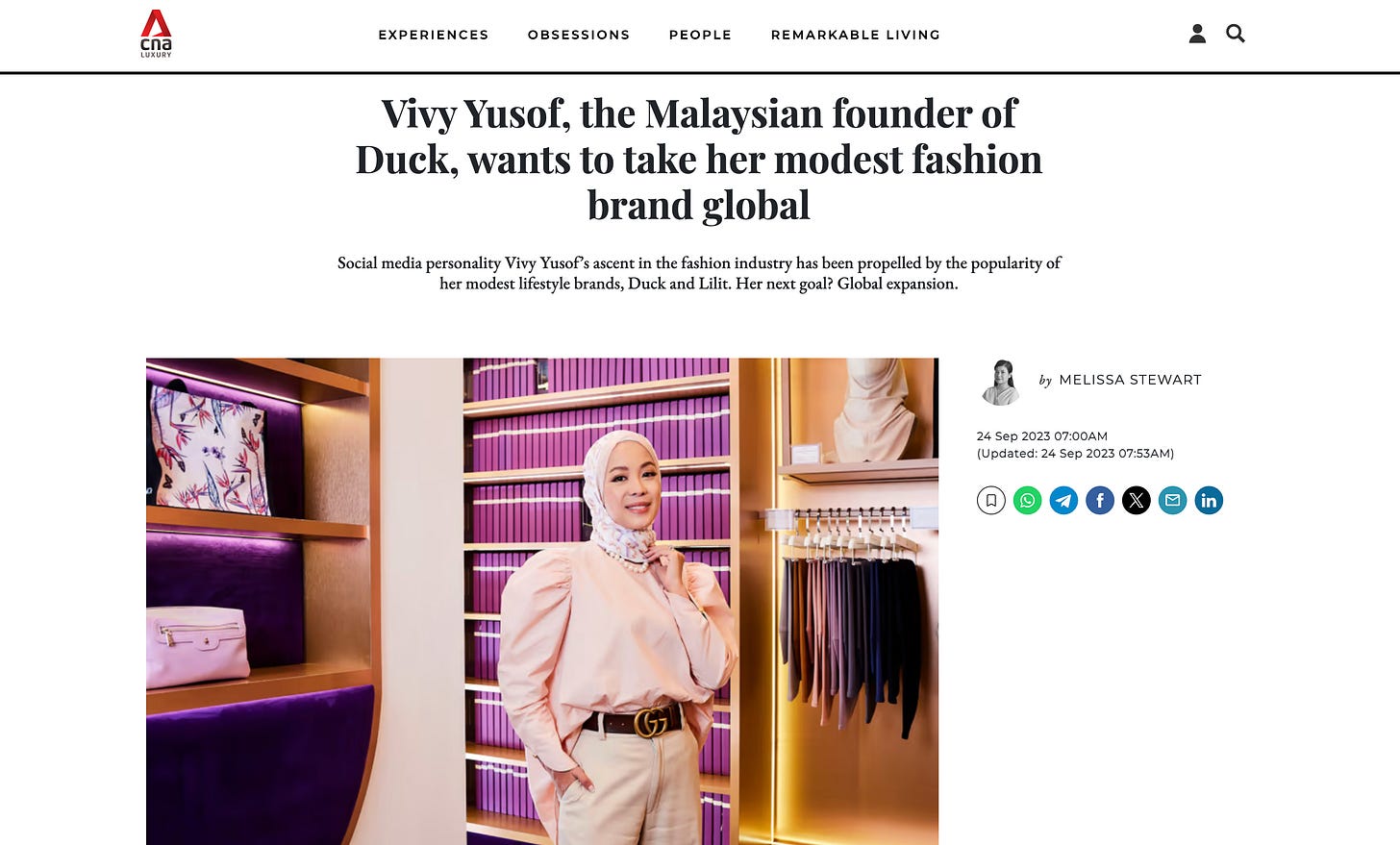Good morning,
It isn’t Monday but Asia Tech Review is in your inbox with one of our Originals. Last year, we published a handful of original stories which are among ATR’s most read issues—including Sequoia’s split, Tech In Asia’s sale and Tokopedia X TikTok Shop. The goal is to publish more.
Today, we look at a true OG in Southeast Asia’s e-commerce space which has been acquired in a fire sale that was barely picked up by the media. Read on for Ka Kay Lum’s take on FashionValet’s new era.
We will be back on Monday with the regular weekly round-up—until then, enjoy the rest of your week and the weekend.
Best,
Jon
PS: Follow the Asia Tech Review on LinkedIn for the latest posts. On Telegram? The ATR Channel shares news as-it-happens and you can join the community chat here.
Cut-price deal for 15 year-old company underscores difficulties of a maturing e-commerce market—and the hammer blow Covid dealt offline retail
Malaysia-based e-commerce company FashionValet (FV), the one that was backed by the country’s sovereign wealth fund Khazanah Nasional Bhd in 2018 and raised nearly $20 million, has been taken over by local investment firm NXBT Partners in a fire sale.
The 15-year-old company has a long history in the startup space—it reportedly raised nearly $20 million during a period that was much tougher for startups—but news of the deal was reported only by local tech news portal Amanz. That’s despite, also, considerable buzz when it announced a major pivot to preserve its business in September 2022.
As one of Malaysia’s original startups, FV’s moves tend to generate plenty of analysis and scrutiny, as is certain the case with rare, early-stage tech investments made by Khazanah, the $32 billion state-backed fund. Another state-linked fund Permodalan Nasional Bhd (PNB) would later join the cap table of FV.
Founded in 2010 by husband-and-wife team Vivy Yusof and Fadzarudin Anuar, FV is one of the fashion e-commerce OGs in Malaysia, let alone Southeast Asia. The platform focuses on selling third-party fashion items which eventually led to the creation of two in-house modest wear brands called dUCK and Lilit, as announced in the pivot 18 months ago.
Vivy claimed that revenue doubled post the investment from these two state-linked funds, although the company almost never shared any performance figures publicly, not even typical vanity metrics like GMV, gross merchandise volume which accounts for the total value of all goods sold irrespective of discounts, promotions, etc.
FashionValet’s Series C round closed in 2019 and was to be worth $12 million, according to MalayMail—that was a considerable amount at the time, especially for a startup based in Malaysia
Based on 2021 filings, revenue grew 34% to RM113.52 million (US$23.8 million), while losses were slashed to RM9.6 million (US$2 million), 22% better than the previous year. However, term loans grew 125% to RM6.3 million (US$1.32 million), as the company likely turned to loans to weather the downturn of the Covid pandemic.
Even though Fadza is the group CEO, it was mostly Vivy—a blogger turned influencer—who served as the face of the company. She appeared on magazine covers, took part in media interviews, and even published a book, such was her visibility. That profile likely helped her company raise capital from local government services firm MyEG Holdings, Silicon Valley-based Elixir Capital and Japanese online fashion mall Zozotown, before Khazanah and PNB came on board.
As became the trend with Southeast Assia’s e-commerce platforms, FV ventured into omnichannel sales by opening at least 10 brick-and-mortar stores across Kuala Lumpur and one in Singapore.
But this couldn’t save it.
In July 2022, FV moved away from selling third-party brands by closing down the FV website, a strategy it had considered for a few years. Without third parties, it put the entire focus on two separate sites under the Lilit and dUCK brands.
Considering the stiff competition from Zalora and the shift of brands themselves going direct to consumers instead of through retailers, it was perhaps wise for FV to double down on its in-house brands instead.
Of course, the move did raise questions from the public, especially when “millions” were raised by FV from not just one, but two state-linked funds.
But based on the takeover by NXBT Partners, it would seem that despite the pivot and Vivy’s global expansion narrative didn’t quite manage to lift the company out of a distressing situation.

According to data platform Alternatives.PE (formerly known as VentureCap Insights), NXBT Partners recently acquired secondary shares of FV from Khazanah, PNB and a few other investors. Currently, the investment firm owns 51.25% of FV, after paying some US$1.1 million for those secondary shares.
That indicates FV is now valued just slightly over US$2 million. That’s down significantly from a post-money valuation of $104.5 million when it raised money from Khazanah in 2019.
ATR understands that NXBT is a personal investment vehicle owned by Malaysian entrepreneur Afzal Abdul Rahim. He’s notable for running Malaysia telco Time dotCom Bhd, which is worth RM9.4 billion (US$2.1 billion) today, employs some 1,400 staff and is notably also a portfolio company of Khazanah.
Afzal wears many hats, serving also as a director of regional banking group CIMB Group while he’s also a founding board member of Endeavour Malaysia. He’s best known for successfully turning around the then-troubled Time dotCom in just two years.
But that was just the beginning. His entrance into Time dotCom further cemented his personal wealth when he subsequently sold his data centre and wholesale internet protocol businesses to the company.
Afzal is known to have been a friend and mentor to the FV founders, as Vivy openly admitted in past business conferences held by Khazanah. There’s nothing odd about that, founders often seek out other founders or notable business figures for advice and help, in this case he happened to also turn acquirer.
Certainly, Afzal’s experience managing distressed assets mark him out as a suitable candidate to transform the FV business. He’s certainly seemingly up for the challenge, having had enough conviction to become its majority owner.
However, is FV worthy of a turnaround? That’s another question altogether. For now, we shall see what’s next for this former poster-child of the Malaysian startup space.
Based in Malaysia, Ka Kay invests in financial services with Singapore’s Cento Ventures. Previously, she was a journalist covering private capital and startups in Southeast Asia.
If you’re a freelancer reporter or want to contribute to Asia Tech Review, contact contributors@asiatechreview.com





